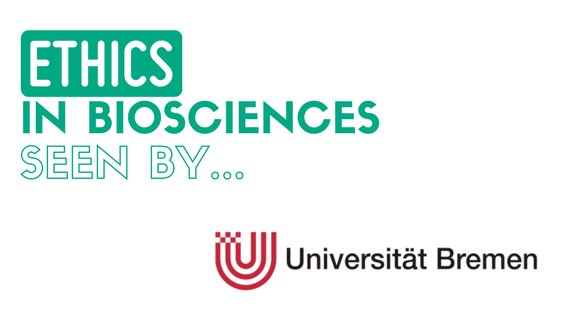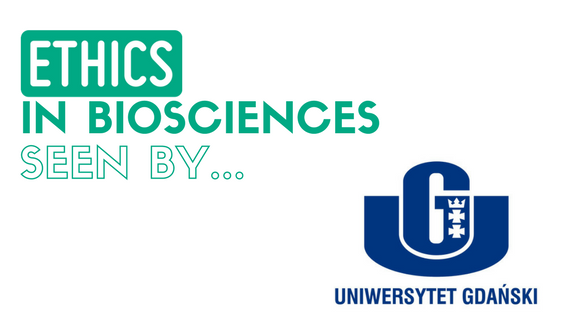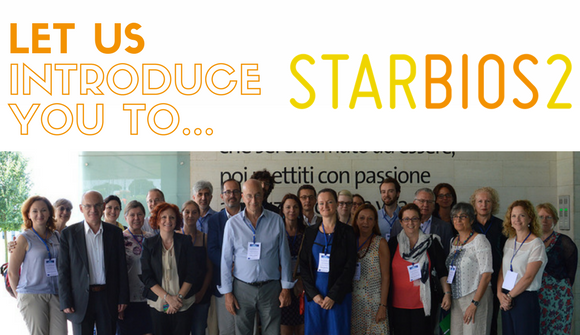University of Bremen – Faculty of Biology & Chemistry Dr. Doris Elster – Head of the Department of Biology Education at the Institute of Science Education. How do you understand Ethics in biosciences research? The term “research ethics” comprises a set of values, norms and institutional regulations that support and regulate scientific activities. Research has a fundamental ethos, namely the search for truth. At the same time, research ethics emphasizes that research has a – more general -responsibility for the society. In this area of tension between researcher’s curiosity and responsibility towards humans and the environment research ethics in biosciences occurs. What are the current standards and actions to achieve better Ethics in the University of Bremen? At the University of Bremen ethical issues are determined within the “Regulations assuring good scientific practice” (German Research Association) and complied within the “Principles of good scientific practice”, adopted by the Academic Senate on February 23, 2002. The nine members of the “Committee for the Investigation of Allegations of Scientific Misconduct” are elected by the Academic Senate of the University of Bremen and investigate and evaluate any concrete suspicion of scientific misconduct. What are you aiming for with the implementation of the STARBIOS2 actions towards better Ethics standards for the Faculty Biology and Chemistry at the University of Bremen? Our aim is to raise awareness of ethical issues in general and to promote good research practice based on already existing and guidelines as well as further specific guidelines for the biosciences. At the University of …
Ethics in Biosciences, seen by the University of Gdansk, Poland
Prof. Krzysztof Bielawski – is a Professor at IFB. He is also Vice-Rector for Development at University of Gdańsk (UG) and has a PhD in medical biology and D.Sc. in biological sciences. Prof. Bielawski is a full-professor in biological sciences since 2011. 1. How do you understand “Ethics” in biosciences research? Ethics plays a vital role in research, especially in biosciences. Two aspects are to be taken into account in this respect. On the one hand, we have ethics in the sense of research ethics, valid for any research area. This includes issues such as research integrity, resolving conflict of interest, equality, so called “good and bad science” issue, etc. On the other hand, specific ethical issues affect the work of bioscience researchers related e.g. to the use of animals, human tissues, embryos or GMO, and have to be dealt with in a responsible way in order to make research safe, reliable and acceptable. 2. What are the current standards and actions to achieve better Ethics in Gdansk University and in Poland in general? Ethics in biosciences is regulated in Poland by rules introduced on the national level. Researchers need to observe laws and regulations regarding the use of animals, human tissues as well as GMO or GMM. Specific ethical consents need to be obtained from the respective national or regional bodies as a proof that the institution and the projects complies with the required procedures. In some cases these consents are issued e.g. by the Ministry for Environment in other …
Let us introduce you to STARBIOS2…
Vittorio Colizzi, coordinator of STARBIOS2 project, is Full professor of General Pathology and Immunology, and Director of UNESCO Chair in Biotechnology and Bioethics at University of Rome “Tor Vergata”. He will talk about the aim of the project and the concept of Responsible Research and Innovation (RRI). 1. How would you describe the concept of Responsible Research and Innovation? In short, RRI is an inclusive approach to research and innovation (R&I). It aims to better align both the process and outcomes of R&I with the values, needs and expectations of European society, and to ensure that societal actors work together during the whole research and innovation process. 2. Why is RRI important for the advancement of the research? Research and innovation have never been carried out in isolation from the social, political and economic context. But the RRI helps us to highlight an important fact: one of the main risk, for European research is its inadequate connection with society. The loose connection between research and society could make European research unable to address the key development problems, unable to exploit its potential for innovation and competitiveness in the global market, and socially isolated or contested (see the case of the attitude of many citizens towards the vaccinations). For these reasons, RRI is important, because it focuses on the subject of a stronger R&I, and even more relevant with respect to society; a society of which R&I itself is an integral part. 3. Could you describe the 5 key issues …






